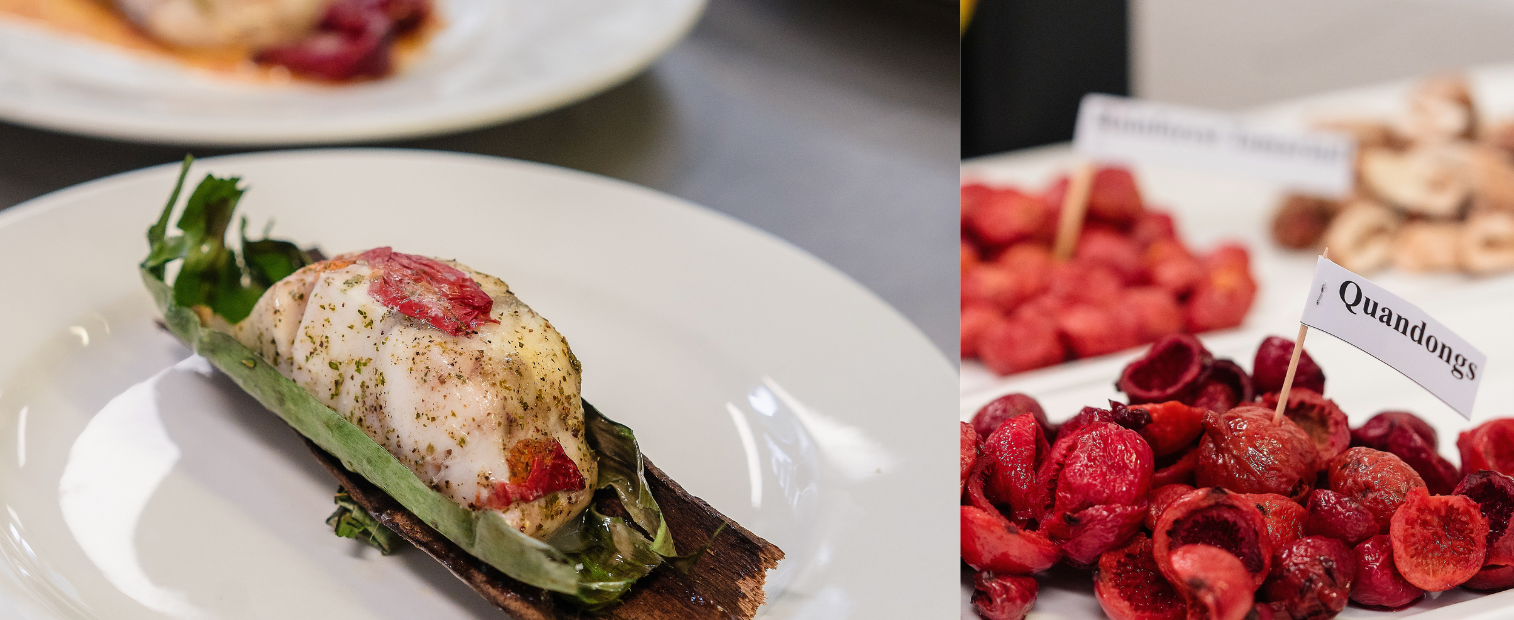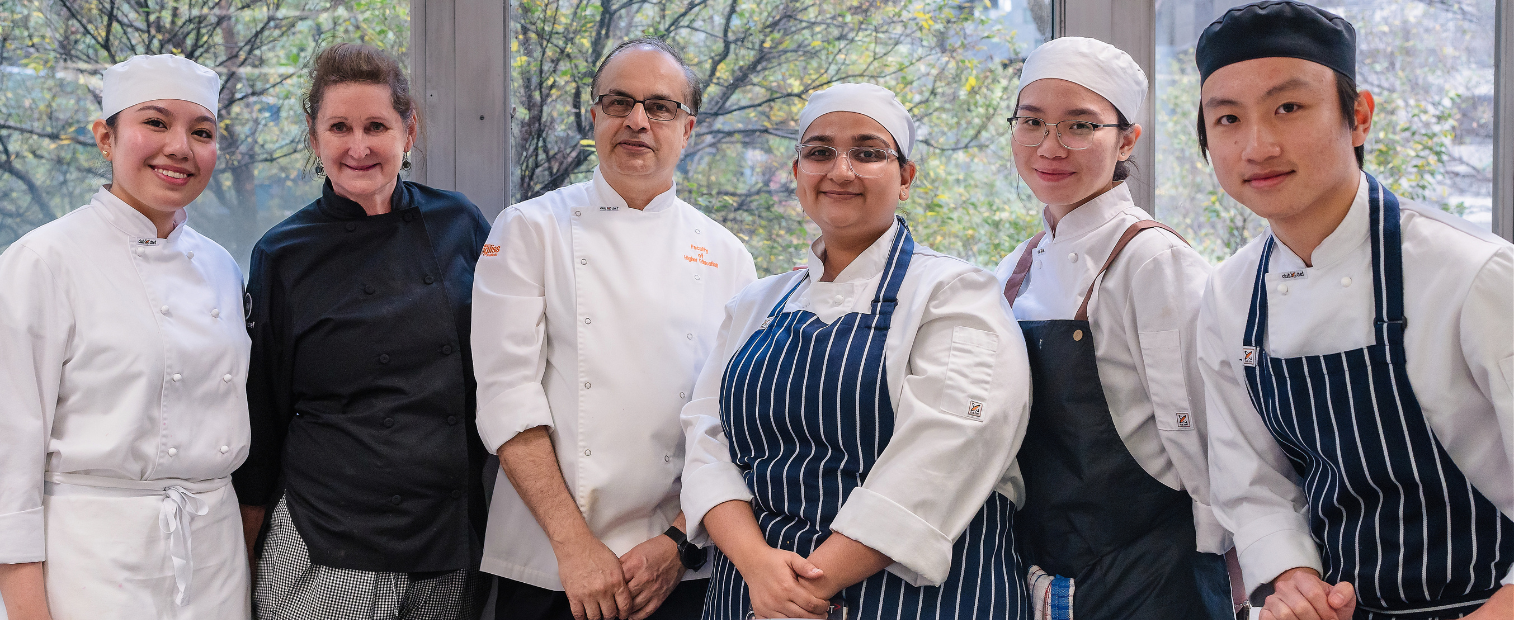Culinary Management Students Explore Native Australian Flavours

Creatively using native Australian ingredients was the focus of a workshop for Angliss Bachelor of Culinary Management students led by guest Outback Chef and owner of Outback Chef's Wild Food Farm and Café Jude Mayall.
During the workshop, Chef Jude introduced students to a variety of ingredients like wattle seed, bush tomato and quandongs. Students then crafted a variety of dishes such as damper infused with lemon myrtle, barramundi in paperbark with native herbs and cheesecake with native herbs, fruits and spices.
While the damper baked, Jude and Angliss culinary arts lecturer Krishna Thalaachawr guided students through the onsite Culinary Garden, collecting additional ingredients for their creations.
As the focus on using native ingredients increases, students at William Angliss Institute have the opportunity to master these unique ingredients, preparing them to share their knowledge in the culinary industry.
Author of The Outback Chef, Jude emphasised the importance for aspiring chefs and restauranteurs to learn about edible native botanicals.
"I have always been interested in Aboriginal art and culture and, because my background is working with food, it seemed a natural progression to start enjoying and playing with native Australian food.
"We are a multi-cultural country, and adding Australian native food to recipes gives our dishes a unique edge. I think it's crucial to support this important industry, and respect the natural foods of this land," she explained.
Creating dishes using flavour profiles of native Australian ingredients motivated Bachelor of Culinary Management students to further learn about native ingredients.

Leap Launh is enjoying his studies at our Melbourne campus, which he began after completing high school in Cambodia.
"A highlight for me has been these workshops. I knew about some native ingredients before but today I have learnt about so many more plus how to use them in creating dishes. I think it's important for us to learn about such flavours and I want to continue to use these in the future," said Leap.
For Taranmeet Kaur Kalsi, who continues her culinary journey after studying in India, native ingredients like pepper berry have been particularly inspiring. "I enjoyed the flavour it added to the Whipped Feta with Pepper Berry and Lemon Myrtle Balls. I look forward to using more native ingredients in my cooking," she shared.
Incorporating native ingredients into modern techniques and finding the right balance of flavours can be challenging. Chef Jude praised the students' creativity and enthusiasm.
"The students have been amazing. I've been overwhelmed by their enthusiasm, and willingness to think about what they're doing while incorporating Australian native flavours. Chefs are creatives, and I encourage them to think about how they can uniquely use these ingredients.
William Angliss Institute is committed to providing students with opportunities to engage with industry experts like Jude, enhancing their skills and knowledge for their future careers.
Krishna highlighted that the Culinary Techniques subject is part of the Culinary Management degree, aiming to elevate students' culinary techniques and cuisines including classical French and vegan cooking, plating techniques, butchery, bread dough fermentation and creating menus.
"The hands-on elements aids students in refining specialised techniques and adjusting culinary approaches to reduce waste," Krishna explained.
Kickstart your Culinary Management career today by contacting study@angliss.edu.au or calling +613 8595 5334 for more information.
Published 11 June 2024


